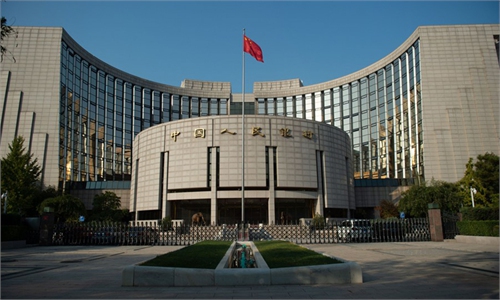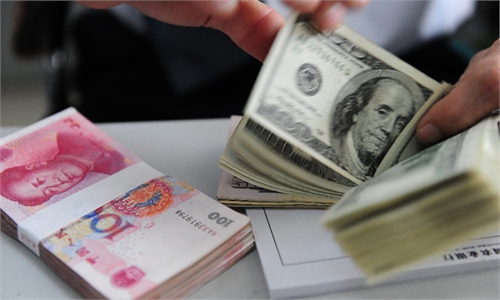
Illustration: Liu Xiangya/Global Times
China's foreign exchange reserves dropped for the third consecutive month to $3.1 trillion in October. Meanwhile, its gold reserves during the month rose for the 12th consecutive month to 71.2 million ounces, data from the State Administration of Foreign Exchange (SAFE) showed on Tuesday.The 12-month unbroken stretch of gold buying signals a potential shift in China's asset allocation, favoring gold over dollar assets. It's part of a general trend that global central banks prefer gold over dollar assets to hedge against risks from geopolitical conflicts and an irresponsible US monetary policy.
In October, global stock markets experienced a slight decline, the US Dollar Index rose slightly and rising US bond yields led to a drop in bond prices, causing a decline in the value of foreign exchange reserves of many countries.
Despite China's continuous reduction of holdings of US debt in recent months, its holdings are still massive. This means that China's foreign exchange reserves also declined month-on-month due to the impact of the volatile international financial environment in October.
However, the exchange rate of the yuan has remained stable even though foreign exchange reserves declined in October. China's foreign exchange reserves are still higher than expected, remaining above $3.1 trillion.
From a long-term perspective, in recent years central banks around the world have shown a strong willingness to increase their holdings of gold as part of their efforts to diversify their foreign exchange reserves.
At the end of October, the World Gold Council released its quarterly report, which showed that in the third quarter, central banks globally purchased a net total of 337 tons of gold, the second-highest quarterly net buying volume in history.
Meanwhile, the proportion of the US dollar in the foreign exchange reserves of many countries has continued to decline. The global trend of "de-dollarization" is still ongoing, and central banks may further strengthen their preference for gold over dollar assets.
As more and more emerging market countries promote cross-border trade settlements in their own currencies, their demand for the US dollar will decrease, leading to a reduced willingness to hold US Treasury bonds.
At the same time, in order to promote cross-border trade settlements in their own currencies, they will need to increase their holdings of gold to stabilize their domestic currencies. This means that in the process of "de-dollarization," reducing holdings of US Treasury bonds may become an unstoppable trend in the medium to long term.
The reasons behind the decision of China's central bank to increase its holdings of gold for 12 months in a row and the likelihood of continued buying are complex and varied. However, overall, it is advantageous for the Chinese economy and financial market to continue increasing holdings of stable assets like gold and reducing holdings of US dollar assets in the current complex and volatile international situation.
The trade war and technology war launched by the US to contain China's economic development has pushed China to diversify its foreign exchange reserve asset allocation to hedge against risks. Gold can play a significant role in protecting assets during the process of diversifying a country's foreign exchange reserve asset allocation.
Compared with developed countries, the proportion of gold reserves in China's foreign exchange reserves is relatively low. Therefore, there is still a structural need for China to increase the proportion of gold reserves.
As more and more countries promote cross-border trade settlements in their own currencies, increasing gold reserves can help China, the top trading partner to more than 120 countries and regions, enhance the stability of the yuan's exchange rate.
Given the impact of the US Federal Reserve's monetary policy on the global economy and financial stability, as well as the weaponization of the US dollar by Western countries, China needs to continue increasing its gold holdings to further enhance the security of its foreign exchange reserves.
The author is a reporter with the Global Times. bizopinion@globaltimes.com.cn


